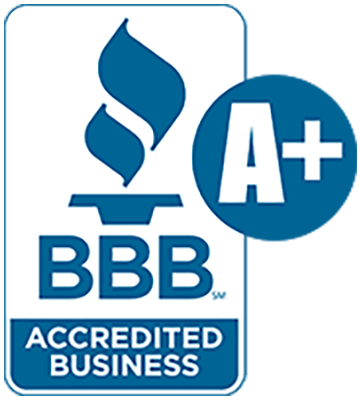But community leaders in the Chinatown-International District fear the neighborhood as they know it may not survive the next megaproject upheaval.
Sound Transit is currently planning the third phase of regional Link light rail expansion, a $54 billion, decades-long project. The expansion includes construction of a new line from West Seattle to Ballard that will require a second train tunnel underneath the city, including part of the Chinatown-International District.
The agency is considering two locations for where to route the tunnel under the district: Fifth Avenue or Fourth Avenue. If built under Fifth Avenue, the nearly decade-long tunnel construction will take place in the heart of the neighborhood — something community members say will devastate the Chinatown-International District’s Asian businesses and residents. The Fourth Avenue alignment is not without impacts, but construction would largely take place on the edge of the district, on the west side of Union Station.
“This is our third and final Chinatown,” said Betty Lau, one of the lead organizers with Transit Equity for All. “The original Chinatown was forced from the waterfront onto Second and Washington. Then Chinatown was forced to move to the current location. If we're forced out again, where are we going to go?”
Transit Equity for All is a large coalition of neighborhood businesses, community institutions, residents and other supporters lobbying Sound Transit to build under Fourth Avenue. It includes representatives from United Chinese Americans, Chinese American Civic Organization, NW Association of Chinese Language Schools, Friends of Chinatown, King Apartments, Panama Hotel & Teahouse, Washington Trust for Historic Preservation and many others.
The coalition is led by Lau and Brien Chow, two longtime community leaders and board members for the historic Chong Wa Benevolent Association, a Chinese community and cultural center on Seventh Avenue and Weller Street. Lau is a retired public school teacher and has spent decades doing neighborhood advocacy. Chow’s mother was restaurateur-turned-politician Ruby Chow, the first Asian American elected to the King County Council. His sister was former Seattle City Councilmember Cheryl Chow.
The choice between Fifth and Fourth
Sound Transit’s proposed tunnel options and their impacts are spelled out in a document called the Draft Environmental Impact Statement. In the Chinatown-International District there are proposals for either a deep or shallow tunnel under both Fifth and Fourth avenues. Construction is expected to last upwards of eight to 10 years.
Chinatown-International District's core business area sits between Jackson and Weller streets to the north and south, and Fifth and Eighth avenues to the west and east. Those eight square blocks contain Oasis Tea Zone, Shanghai Garden, Kau Kau, the Uwajimaya grocery store and many more of the neighborhood’s anchor restaurants and shops as well as residential buildings.
But community leaders in the Chinatown-International District fear the neighborhood as they know it may not survive the next megaproject upheaval.
Sound Transit is currently planning the third phase of regional Link light rail expansion, a $54 billion, decades-long project. The expansion includes construction of a new line from West Seattle to Ballard that will require a second train tunnel underneath the city, including part of the Chinatown-International District.
The agency is considering two locations for where to route the tunnel under the district: Fifth Avenue or Fourth Avenue. If built under Fifth Avenue, the nearly decade-long tunnel construction will take place in the heart of the neighborhood — something community members say will devastate the Chinatown-International District’s Asian businesses and residents. The Fourth Avenue alignment is not without impacts, but construction would largely take place on the edge of the district, on the west side of Union Station.
“This is our third and final Chinatown,” said Betty Lau, one of the lead organizers with Transit Equity for All. “The original Chinatown was forced from the waterfront onto Second and Washington. Then Chinatown was forced to move to the current location. If we're forced out again, where are we going to go?”
Transit Equity for All is a large coalition of neighborhood businesses, community institutions, residents and other supporters lobbying Sound Transit to build under Fourth Avenue. It includes representatives from United Chinese Americans, Chinese American Civic Organization, NW Association of Chinese Language Schools, Friends of Chinatown, King Apartments, Panama Hotel & Teahouse, Washington Trust for Historic Preservation and many others.
The coalition is led by Lau and Brien Chow, two longtime community leaders and board members for the historic Chong Wa Benevolent Association, a Chinese community and cultural center on Seventh Avenue and Weller Street. Lau is a retired public school teacher and has spent decades doing neighborhood advocacy. Chow’s mother was restaurateur-turned-politician Ruby Chow, the first Asian American elected to the King County Council. His sister was former Seattle City Councilmember Cheryl Chow.
The choice between Fifth and Fourth
Sound Transit’s proposed tunnel options and their impacts are spelled out in a document called the Draft Environmental Impact Statement. In the Chinatown-International District there are proposals for either a deep or shallow tunnel under both Fifth and Fourth avenues. Construction is expected to last upwards of eight to 10 years.
Chinatown-International District's core business area sits between Jackson and Weller streets to the north and south, and Fifth and Eighth avenues to the west and east. Those eight square blocks contain Oasis Tea Zone, Shanghai Garden, Kau Kau, the Uwajimaya grocery store and many more of the neighborhood’s anchor restaurants and shops as well as residential buildings.

